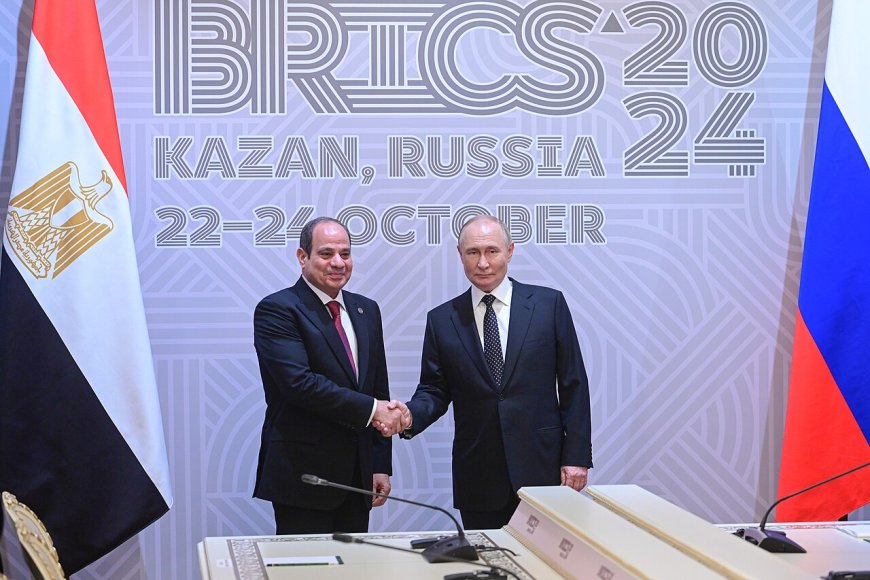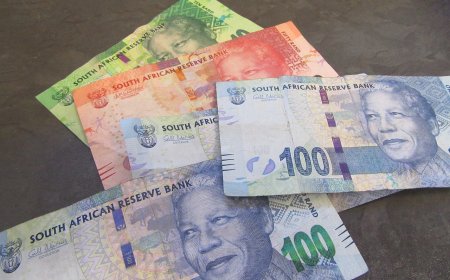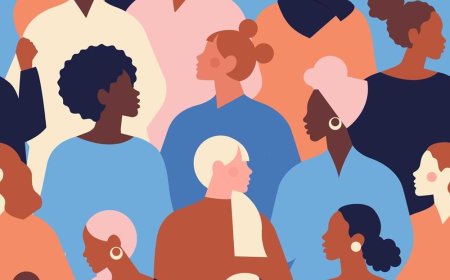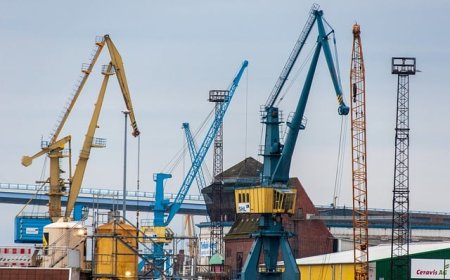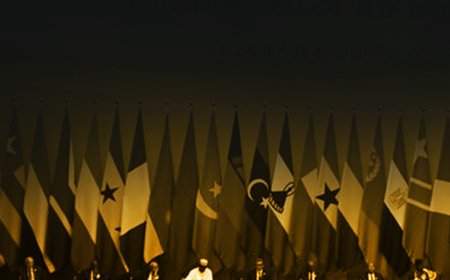This article is part of the BRICS thought leadership series, published by APRI in collaboration with the University of Johannesburg. It explores key themes from the 16th BRICS Summit and the group's broader initiatives. The series is edited by Ada Mare, Bhaso Ndzendze, Serwah Prempeh.
Introduction: BRICS, a rising dream, and human rights
Composed of Brazil, Russia, India, China and South Africa, BRICS promises economic partnership and mutual support to counter global difficulties such as inequality, poverty and terrorism while securing a path towards ‘stability, sustainable development and prosperity’. However, is BRICS really going to reduce global predicaments? Will it help in propelling the international community towards an inclusive future? More importantly, can the BRICS members uphold human rights to create an inclusive international community?
This paper aims to analyse the current members’ standing on human rights. While BRICS has enormous potential as an international organisation with great appeal to rising nations, an analysis of the commitments of the current and new members to human rights will help explore whether BRICS could help in achieving an inclusive and peaceful international cooperation.
At its inception, the vision of BRICS was based on economic development. This has now extended to global politics, modifying Western influence and fostering a new pathway for growth and progress. The BRICS summit in October 2024 introduced the new member states joining the alliance: Egypt, Iran, the United Arab Emirates (UAE), Saudi Arabia and Ethiopia. Soon, this alliance of eleven nations will make up 37 per cent of the world’s GDP (Gross Domestic Product), and their currencies represent 6 per cent of all countries’ international reserves.
While economics are vital for the survival of human society, human rights remain a mandate for its functioning. The notions of freedom, dignity and respect enable people worldwide to reach their full potential, leading to emancipation. This in turn allows for the exploration of untried ideas. International politics has never been free of powerful states acting as political influencers in an attempt to establish hegemony over weaker states. In this regard, scholarship must pay close attention to geopolitical alliances and the swiftly growing organisations who are catching the attention of new suitors and are capable of spreading propaganda and pioneering an irregular international system in the name of developmental progress. For more clarity, we will consider the BRICS organisations, their capabilities and their contemporary standpoint on international platforms.
With its new additions, BRICS will be predominately constituted by members with autocratic forms of government. At the same time, the organisation will become of even greater importance to the international community, barring the economic power it will hold through GDP and its support of new cultural orientations. Among the members, a particular rising attribute is the demand to cease meddling in the internal matters of states. These developments led to the organisation’s original purpose: to restructure the Western-dominated world system and international institutions catering to the demands of a few powerful states. Additionally, BRICS has its own reliable financial cap, capable of funding and helping nations develop. Unlike Western aid programmes, BRICS aid comes with no conditions.
The growing concern for human rights advocates and practitioners is that most BRICS members are not democratic. In this sense, this growing organisation could be viewed as a union of governments that wish to govern their nations forever. These advocates and practitioners believe that BRICS might become a safehold for ‘autocratic regimes’ whose ambition it is to do away with the monetary domination of the Western bloc, so that their rule might be undisturbed by the boycotts that accompany the violation of ‘citizens’ freedom, human rights, not holding transparent elections and not hav[ing] the rule of law’. Another concern is that the influence of the major BRICS powers over the other members will grow. As leaders of such a dominant power alliance, it would be a cakewalk to gain footing as an arbitrator with Western associations.
With these considerations in mind, this paper examines the entrenchment of human rights provisions in the constitution of the five initial BRICS member states. This demonstrates how declaring human rights differs from implementing them and, therefore, from constituting a feasible alternative in human rights protection for the countries of the Global South. Thus, our analysis questions the role of BRICS as a guarantor of human rights beyond the developed Western world or, conversely, as a haven for autocratic regimes which instrumentalise human rights for the purpose of dominating the regions it purports to represent.
Analysis: Brazil, Russia, India, China and South Africa’s constitutions and recent ventures violating human rights
Brazil’s constitutional commitments and actions amidst human right violations
Brazil’s constitution establishes a federal state (a ‘federative republic’) in which the dignity of the human person, labour and free enterprise, and political pluralism are established as foundations (Art. 1 III, IV, V, respectively). Moreover, the construction of society as ‘free, equal and just’, the ‘eradication of poverty’ and the promotion of general well-being without discrimination are fundamental objectives of the federative republic (Art. 3 I, III, IV).
By merely establishing such foundations it should become clear that human rights in Brazil will occupy centre-stage. This is made especially clear by the prevalence of human rights, the self-determination of the peoples and the repudiation of terrorism and racism among the principles defining the country’s international relations (Art. 4 II, III, VIII). Brazil’s constitution is formed around a strong social agenda, which entrenches a significant range of social rights, enhanced labour protection and an emphasis on equality in all domains. It is said that a constitution crystallises as its fundamental provisions the state’s greatest priorities. Sometimes, the greatest priorities also tend to be the state’s greatest problems. In the Brazilian context, this could not be more accurate. Activities in the nation, we are certain, would concern human rights practitioners. If it is true that without democracy, there can be no human rights, then Brazil is suffering from a serious democratic and human rights deficit.
The political tensions in Brazil during the ‘democratic’ elections are never free of controversies; hints of authoritarianism were indicated under President Jair Bolsonaro. The 2021 campaign noted many casualties where the police were involved in killings. This was followed by Bolsonaro’s sweeping claim that the 2022 elections were rigged and that ‘it was only through fraud that he could lose’. The democratic undermining caused ‘more than one million Brazilians, including prominent businesspeople, former Supreme Court justices, politicians, and artists’ to co-sign ‘a manifesto defending democracy and the rule of law’. The degradation of Brazil’s democracy is affecting the indigenous population, the climate laws and education. It is also exacerbating corruption and discrimination against people of colour.
Human rights are about safeguarding people against violence, treating them with respect and protecting them against abuse and exploitation. However, in Brazil these transgressions have been normalised and even overlooked. It is concerning where the trajectory of human rights is headed in Brazil. Notwithstanding the reforms of the current Lula government and the rising awareness of the vindication of indigenous peoples – along with the activism of the indigenous populations themselves – we can only speculate whether Brazil can one day fulfil the pledge for human rights protection the nation makes in its constitution.
Russia’s constitution and its actions
In relation to human rights protection, the Russian constitution clearly adopts the Western framework of the entrenchment of human rights. However, there are important differences. For example, unlike many European constitutions, which only provide a single declaration of human rights, the Russian constitution first entrenches general principles, and then specialises in the form of particular rights. Another differentiation is observed in Russia’s declaration as a ‘social state’ (Art. 7 Par. 1), which reveals the state’s intention to maintain ties with its Soviet heritage. The simultaneous declaration of classic liberal rights (private property and freedom of competition first and foremost) erases this possibility.
In reality, post-Soviet Russia adopts the classical Western ‘ordoliberal’ framework, i.e. the constitution of a liberal state on the basis of individual rights, but with a minimum entrenchment of social policies guaranteeing individual liberties and, contrary to the latter, a dependence on government politics for the range of their implementation. We may therefore ask: If Russia declares human rights in its constitutional document, what justifies the nation’s constant violation and lack of implementation of human rights? In 2022, the political opponent of President Putin, Ilya Yashin, was accused of ‘false information’ and sentenced to eight and a half years in prison. Similarly, in 2023, Vladimir Kara-Murza was accused of treason and sentenced to 25 years in prison.
Russia declared war on Ukraine two years ago using cruise missiles to weaken the state before a ground incursion. Cities were bombed ‘using rocket artillery and cluster munitions’. However, because of Russia’s commitment towards human rights (as primarily entrenched in Article 2 of the constitution), ‘Moscow denies targeting civilians. Russia also contradicts reports suggesting that ‘Russian-affiliated forces committed apparent war crimes, including torture, summary executions, sexual violence, enforced disappearances, and looting of cultural property’.
Russia’s conflict with Ukraine has rightly spurred concern and debates in the international community, particularly in Europe. The invasion of Ukraine is not the first time Russia has acted as an aggressor: Similar invasions happened in 2008, with the invasion of Georgia; in 2014, with the invasion of Ukraine and Crimea; and in 2022, with the invasion of Kazakhstan. While one must recognise that Russia is involved in international developmental projects, it is also true that the nation creates the need for this development by promoting extremism.
India’s welfare dream and difficult neighbourhood relations
As declared in the constitution’s preamble, India is a ‘sovereign, socialist, secular democratic republic’. From this sentence only, it is clear what type of state India purported to become at the moment of its independence: The invocation of sovereignty indicates the country’s will to break ties with British imperialism and honour the people’s claim to self-determination. Furthermore, the preamble defines the state’s core values as justice, liberty, equality and fraternity. Of these four values, justice is defined as ‘social, economic and political’, liberty as encompassing ‘thought, expression, belief, faith and worship’, equality as covering both ‘status’ and ‘opportunity’, and, finally, fraternity as the principle ‘assuring the dignity of the individual and the unity and integrity of the nation’.
The declaration and protection of human rights take centre-stage in the fruition of these values. It must also be noted that the constitution provides a broad definition of the ‘state’ as encompassing all territories within India, thus establishing a uniform locus for implementing those rights guaranteed in the constitution. By examining this extensive ensemble of entrenched human rights and directive principles in the constitution, it is evident that India purports to establish a quintessential welfare state. Even classic liberal rights (such as the right to personal liberty and formal equality), under the influence of the fundamental principles and the values declared by the constitution in its preamble, cannot be interpreted in any other manner than fulfilling the paradigm of the social state and affirmative government measures. Yet the recent democratic index suggests that democracy in India is declining. This is an ironic development: While India gains trust and reliability in the international domain, these qualities are diminishing within the nation.
In recent years, India has been pushing for a place on the UN Security Council. Given the country’s low democratic standards, this request can only be alarming. The tagline India aspires to inherit is to emerge as ‘a friend to the world’ (‘Vishwa Mitra’). However, India has not been able to achieve this goal with its neighbours, China and Pakistan. In 2016, a surgical strike was employed by the Indian government as a response to terror attacks on the Indian army. NSA Doval remembered Prime Minister Modi’s words: ‘This attack should not go without a response’. After the success of the strike, the PM stated that ‘retaliation should be immediate to send an unambiguous message’, talking about the terror attacks believed to be springing from within Pakistan. Similarly, in 2019, India conducted the ‘Balakot airstrike’ in Balakot, Pakistan, taking ‘revenge’ for the ‘heinous Pulwama terror attack on a convoy of Indian paramilitary personnel’.
We do not dispute India’s resounding message: ‘No cross-border terrorism will be tolerated’. However, the Indian government’s actions indicate a complete breakdown of trust between the Indian and the Pakistani governments. The concern for human rights compels us to argue that terrorism is a problem for all, and the Indian government must work with the Pakistani government to resolve their tensions. Acting alone for revenge and national security can result in the loss of innocent lives.
China’s ambition and arbitrary actions
China is explicitly defined as a ‘socialist state’ (Article 1 Paragraph 1) organised ‘under the people’s democratic dictatorship led by the working class’. ‘The socialist system’ is proclaimed as ‘the basic system of the People’s Republic of China’. In that regard, all power is invested in ‘the people’ (Art. 2 Par. 1) as organised in both the National People’s Congress and local congresses (Art. 2 Par. 2). Human rights are not incorporated into a distinct section within the constitutional corpus but are included in the provisions declaring the state powers and the democratic sovereignty of the people. The first cluster of rights the constitution entrenches is that of the minorities residing within China, who are declared equal, with any form of discrimination being prohibited and the central state pledging to forge bonds of ‘equality, unity and mutual assistance’ among all peoples on Chinese territory (Art. 4). However, in practice, the Chinese government disregards the international standard of human rights. From denying freedom of speech to citizens through ‘fear of harassment, arrest, or retribution’, to disallowing the freedom to practice the religion of one’s choice, to minority citizens facing ‘mass arbitrary detention, Orwellian surveillance, political indoctrination, torture, forced abortions and sterilization, and state-sponsored forced labour’, China’s human rights conduct has worried many international commentators.
Following the assertive and expansionist nature of the country’s international policies and engagements in recent years, China is in treacherous waters. The turmoil of security dilemmas in the South China Sea is an example: The Chinese government expresses that the sea is part of Chinese territory. China continues to develop its military presence, ‘constructing ports, military installations, and airstrips,’ and has even come up with the strategy of ‘creating new (artificial) islands altogether.’ Meanwhile, China proclaims that it wants to enable the world to develop through peaceful cooperation, a tagline of its illustrious Belt and Road Initiative (BRI). The initiative is promoted as noble and novel. However, the risk calculations suggest that while prosperity is a possibility, the ‘debt, governance, environmental and social risks’ of the BRI need to be taken into account. In the case of Sri Lanka, China provided money to build a port in Hambantota. When the Sri Lankan government was unable to repay the debt, the Chinese government was allowed lease the port for 99 years in exchange for ‘debt relief’. This is the ‘debt trap’ referred to by the media and some research agencies.
Another rising concern from European and Western countries is that the BRI is a way for China to increase its soft and socialising power, since the BRI may emerge as ‘a powerful lever to bend authoritarian-leaning countries toward Chinese interests’. The concern the European and developing nations carry towards the BRI indicates that Chinese projects and development strategies are not entirely reliable or trustworthy (though it should be noted that the strategies of the West have also been under scrutiny). To China’s advantage, its BRI emerges as an option for enforcing structural changes to a borrowing-nation’s political and economic functioning. In addition, China’s treatment of Tibet and Taiwan, with its long history of usurpation and threatening of both territories, does not project the country as one too considerate of its neighbours’ self-determination. This doubt, combined with China’s conduct of international affairs, is concerning for human rights advocates and practitioners.
South Africa’s failing state and concerns
While South Africa is a postcolonial state, it was not founded upon a settler population inhabiting a land forfeited by its Indigenous custodians, as is the case with many former colonies. On the contrary, in a world where ‘whiteness’ has historically signified ‘blackness’ domination, South Africa presents the example of a ‘Black’ state, where the formerly subordinated people, after decades of resistance, managed to cast off an inhumane Apartheid regime and gain their self-determination.
The South African constitution serves as a testament to this grand achievement. The introductory provision itself seeks to encapsulate this heritage. Human dignity, the elimination of racism and sexism and universal suffrage – among others – are entrenched as values of the state (Articles 1 a, b and d, respectively). It is as if the state, from its constitutive moment, seeks to do away with Apartheid’s discriminatory precedent. In this regard, the very preamble of the constitution pledges to ‘heal the divisions of the past, and establish a society based on democratic values, social justice and fundamental rights’. Human rights thus occupy centre stage in South African constitutionalism and are codified in a single section entitled ‘Bill of Rights’. Furthermore, a wide agenda of social rights is enforced through positive measures: Housing, specifically ‘adequate housing’, is recognised as a right (Art. 26), along with the right to food, water, health care and social security (Art. 27), the protection of childhood (Art. 28) and education (Art. 29). However, there is a serious issue of human rights implementation in South Africa. It is not to be forgotten that the Indian Mahatma Gandhi experienced racial discrimination for the first time in South Africa.
Discrimination, corruption, a failed economy and political instability tarnish the state. The democratic progress and condition of the country have been on thin ice as long as economic inequality in the region has been high. Most unjust and corrupt situations are created by the government in power, and indeed, corruption is a prominent problem in South Africa. The Zondo Commission, set up in 2018, reported that about ‘1,438 persons in the public and private sectors’ have been caught for corruption, including ‘criminal charges against former President Zuma’s son for facilitating bribes for awarding contracts from state-owned companies’ to elites of the society. The government has been accused of being involved in a multitude of issues, including the violation human rights, killings of an unjust nature and inhuman treatment of people. The conditions of the jails are also extremely brutal, arrests and detention of citizens are often conducted on an unlawful basis and human trafficking is rife.
Yet another significant factor in the insufficient implementation of human rights in South Africa concerns those for whom the independent state was constituted, i.e. the population of Black people with ancestral ties to the land prior to its colonisation, who often face discrimination. Additionally, xenophobia is a characteristic which has not left the country, instances of hate speech and harassment of migrant workers are constantly reported, and migrant voices are often suppressed, limiting their participation in the functioning of society.
South Africa’s conduct is clearly damaging its international commitment towards human rights. Meanwhile, there is also concern regarding the country’s infringement on the climate, which is considered a shared right of all humanity. South Africa is the ‘fourth biggest coal exporter, contributing to the climate crisis’. Aside from that of its BRICS partners, there has been little effort on the part of the international community to help the nation out of this crisis.
The new members and their implementation of human rights
A primary concern with the new BRICS members is that none of them are democracies. Furthermore, their track record, compared to that of the Western states, is poor when it comes to human rights: The human rights index for Egypt is 0.25 and Saudi Arabia's is 0.17. Similarly, Ethiopia has a human rights index of 0.38 and the UAE an index of 0.35. The human rights index of Iran is 0.22.
Specific human rights violations in these countries cast further light on this data. Egypt’s inhuman treatment of its citizens has been a recurrent theme of the last couple of years, involving ‘unlawful killings, enforced disappearance, torture, harsh and life-threatening prison conditions’ along with a failing judiciary and law enforcing mechanisms. In the case of Ethiopia, the government lacks accountability and transparency in its functioning. There have been attempts to forcefully hold onto power, which has led to clashes with rebels, resulting in the deaths of innocent citizens. Furthermore, instances of ‘harassment and attacks against the lesbian, gay, bisexual, transgender (LGBT) community have been a constant feature of Ethiopian society. In Iran, the authorities have been found guilty of limiting the freedom of speech and expression along with instances of unlawful killings. The nation has been under scrutiny for limiting the freedom of women and the prevalence of sexual assaults and harassment of women in police custody.
The UAE portrays itself as a ‘progressive, tolerant, and rights-respecting’ nation. However, it practices an arbitrary authoritarian policy. The nation limits the freedom of the press, and many cases of unlawful detainment of journalists and lawyers on baseless charges have been reported. Likewise, Saudi Arabia is responsible for numerous unlawful detainments and the systematic suppression of the fundamental human rights of its citizens. This has extended to limiting freedom of speech, baseless charges against citizens who express their opinions in public, subordinating the position of women in society, the execution of children and violating the king’s promise of abandoning the death penalty for juveniles.
Conclusion and recommendations: Will BRICS be able to uphold its commitment to human rights?
Our analysis suggests that the BRICS member states utilise human rights merely through declarations to assert their dominance in the regions they purport to represent. Current members have already committed multiple internal human rights violations, and the group’s expansion to include new members who are predominately not democracies has raised concerns about whether or not, beyond summit declarations, safeguarding and upholding human rights are a core part of BRICS. It is recommended that all member countries first adopt the classical catalogue of individual rights in order to demonstrate their commitment to the Universal Declaration of human rights.
About the authors
Tejvir Bawa
Tejvir Bawa is a realist who graduated with a bachelor’s degree in political science from the University of Delhi. He is currently a Master of Research candidate with the School of Humanities and Communications Arts at Western Sydney University.
Apostle J. Kourbeles
Apostle J. Kourbeles is a Jurist. Having graduated from the School of Law of the National and Kapodistrian University of Athens, he is also an author and currently a Master of Research candidate with the School of Law of Western Sydney University.
